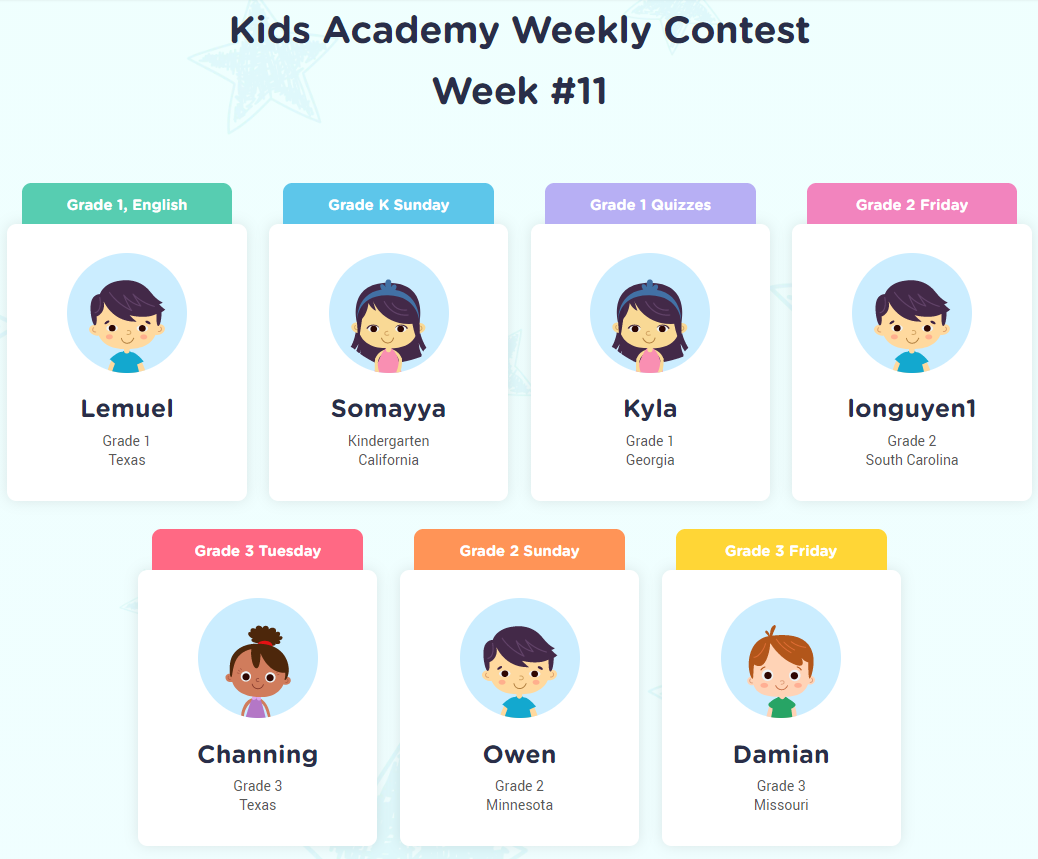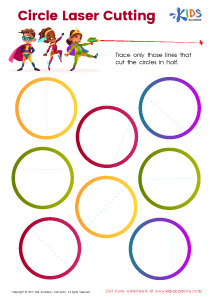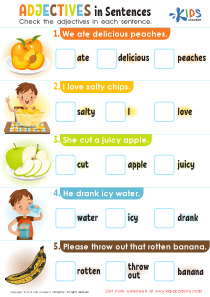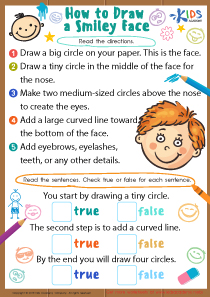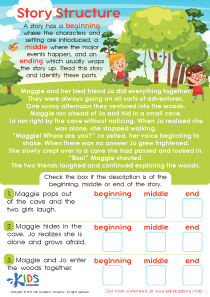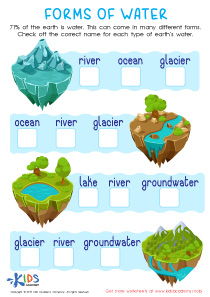Normal Logical Thinking worksheets activities for Grade 2
5 filtered results
-
From - To
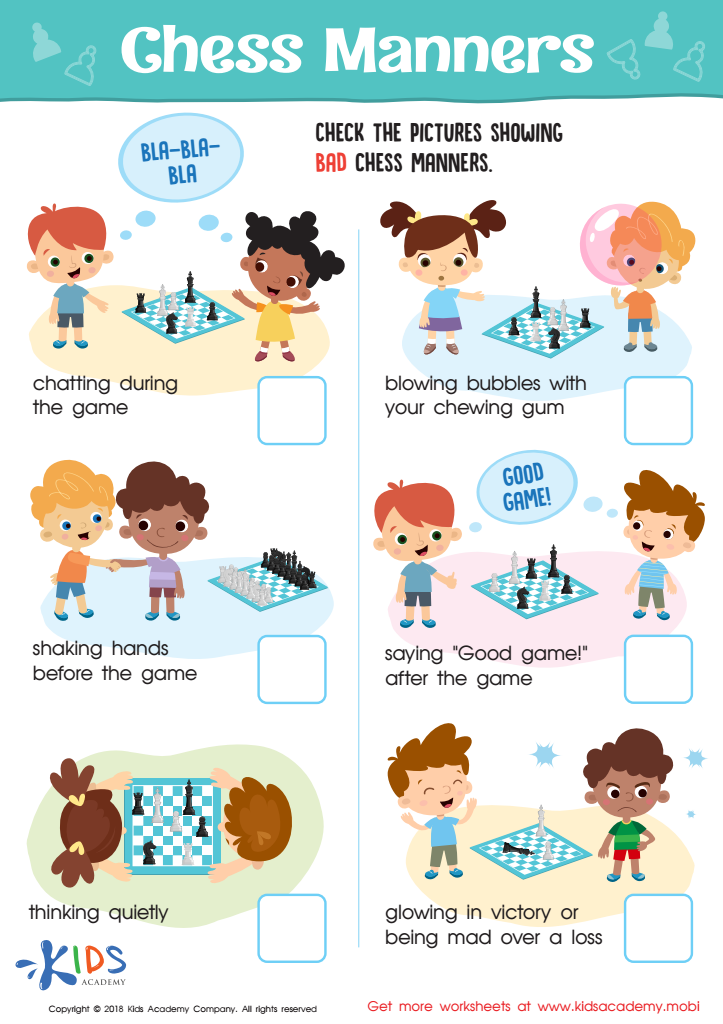

Chess Manners Worksheet
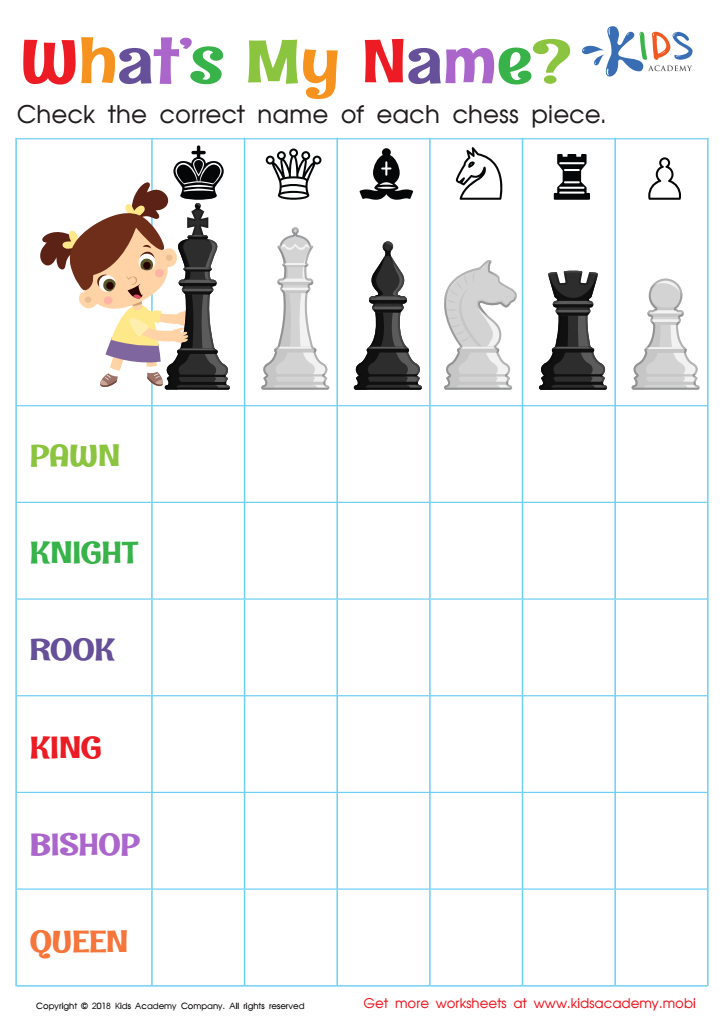

What's My Name? Worksheet
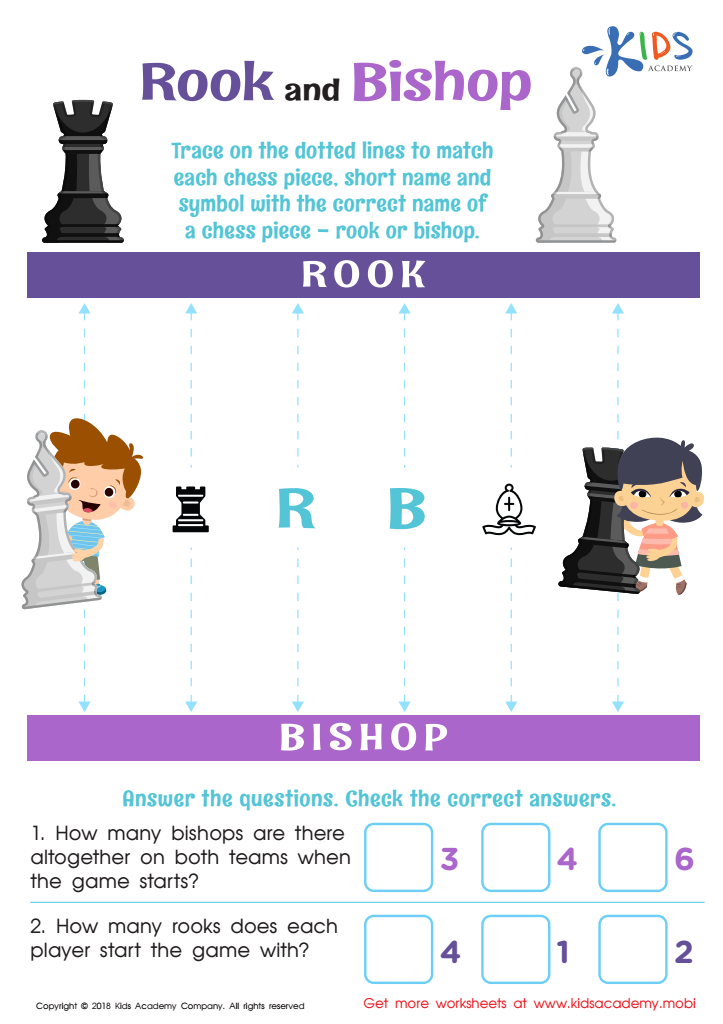

Rook and Bishop Worksheet


Logic Game Sorting Worksheet
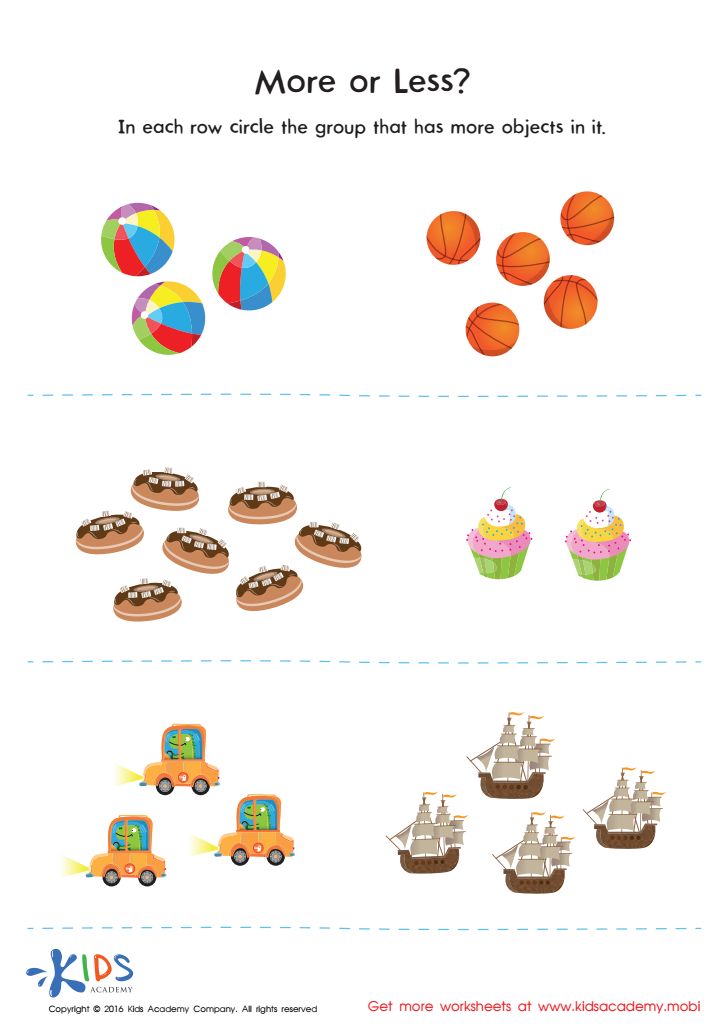

Normal Logical Thinking worksheets activities for Grade 2 are an invaluable tool in the educational journey of young learners. These activities are meticulously crafted to nurture the critical thinking and problem-solving skills of second graders, providing them with a solid foundation not just in mathematics, but in all areas of learning and daily life.
The significance of Normal Logical Thinking worksheets activities for Grade 2 lies in their ability to challenge students in a supportive and structured way. By engaging with these activities, students learn to identify patterns, understand relationships, and deduce conclusions from given premises. This form of mental exercise is crucial at this developmental stage, as it enhances cognitive flexibility and encourages a mindset geared towards analytical thinking and reasoning.
Moreover, these worksheets are designed to be age-appropriate and accessible, ensuring that students are neither overwhelmed nor underchallenged. The variety of problems presented in Normal Logical Thinking worksheets keeps learning fresh and engaging, motivating students to explore different strategies for problem-solving and to persist in the face of difficulties. This not only boosts their confidence in handling complex tasks but also fosters a love for learning and inquiry.
Another advantage of Normal Logical Thinking worksheets activities is their ability to be integrated into various subjects. Logical thinking is a universal skill that improves comprehension and problem-solving abilities across the curriculum, from reading and writing to science and social studies. By practicing these skills regularly through structured worksheets, Grade 2 students become more adept at analyzing information, making connections, and drawing informed conclusions.
In conclusion, Normal Logical Thinking worksheets activities for Grade 2 are a crucial component of elementary education. They equip young learners with the essential skills of logical thinking and problem-solving, laying a strong foundation for academic success and life-long learning. Engaging with these activities regularly helps students become more confident, independent thinkers, prepared to tackle the challenges of future learning with resilience and creativity.

 Assign to My Students
Assign to My Students







